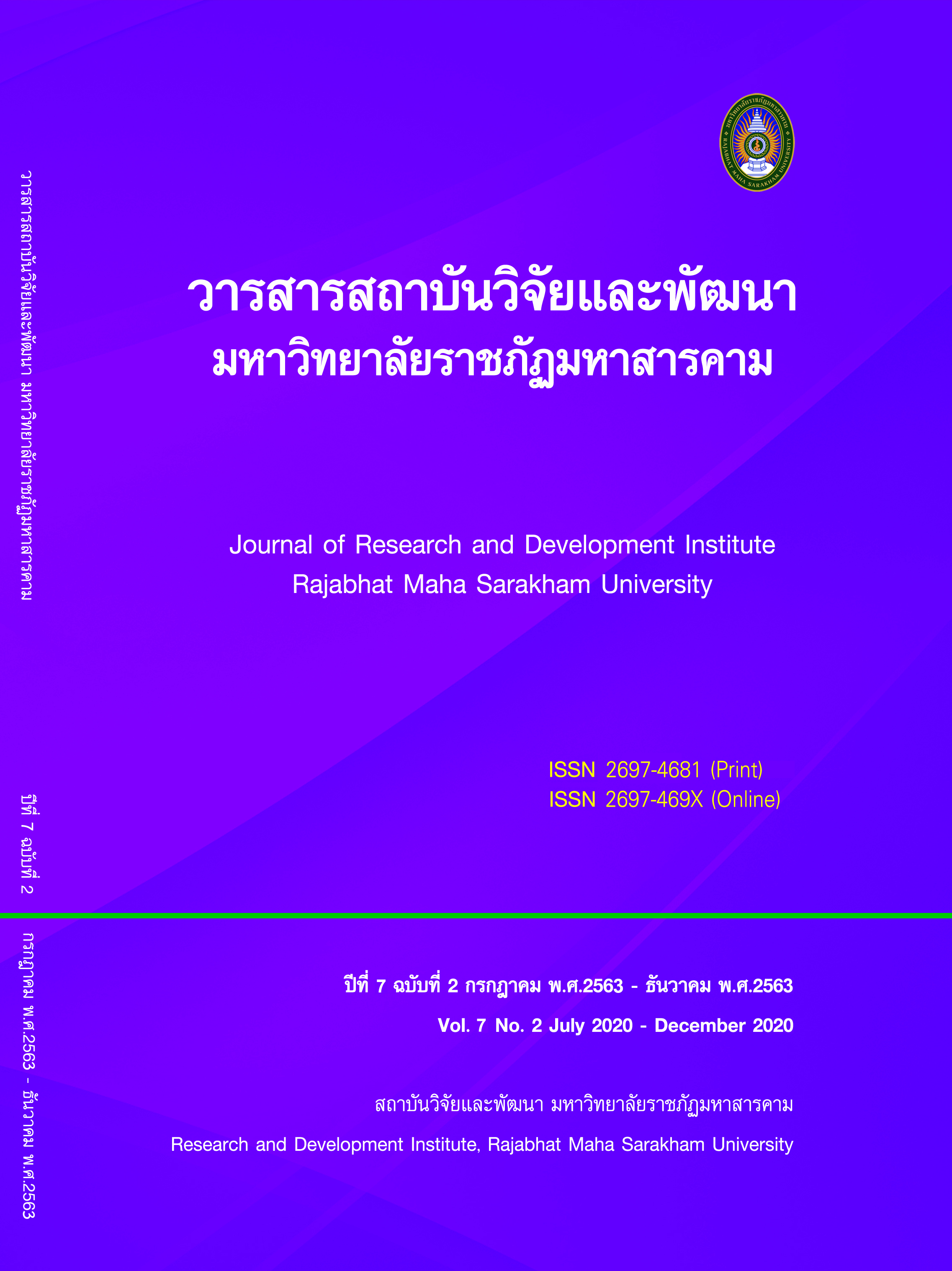The Power Usageunder Section 44 of National Council for Peace and Order (NCPO) to Local government in Maha Sarakham Province
Keywords:
The Power Usage under Section 44, Local governmentAbstract
This research aims to study (1) the power usage under Section 44 of National Council for Peace and Order (NCPO) to Local government in Maha Sarakham province, (2) Impacts of public service management from the power usage under section 44 to Local Personnel Administration in Maha Sarakham Province, and (3) Impact on local politics from the power usage under section 44 to Local Personnel Administration in Maha Sarakham Province. Key informants consisted of: beneficiaries, civil servants and local employees, members of the local council, the village headman, village headmen, local administrators, totaling 37 people; they were selected by purposive selection and using an in-depth, participatory observation study. The research results;
According to the National Council for Peace and Order (NCPO) do the power from section 44 for issuing an order for the administrators of the local government organization in Maha Sarakham Province to stop performing official duties or duties in the local government organization and ordered the local officials to help government officials at Maha Sarakham City Hall for a long time which causing the following effects; 1) the personnel management in local government organizations is centralized, which does not comply with decentralization and constitutional independence principles. 2) The people are not organized in public services as they had been provided by local administrators elected by the people, Inefficient public services such as unclean tap water, not collecting litter according to the period of time causing bad waste, the fire engines and rescuers were unavailable in the event of disasters, lack of infrastructure developing. 3) The political system, the local administration, is a public administration which makes it impossible for the people to use the removal mechanism, which is the destruction of democracy at the local level.
References
References
Donlatham Sammanuch. (2014). Politics in public policy making : a case study of Mahasarakham Provincial Administrative Organization before and after the 22 May 2014 Coup d'état. Master of Political Science Thesis : Sukhothai Thammathirat Open University.
Government Gazette. (2014) Constitution of the Kingdom of Thailand (Provisional) 2014. Government Gazette. Page 1, Volume 131, Section 55, July 22, 2014.
Government Gazette. (2016). Order of the Head of the National Council for Peace and Order No. 1/2016 regarding the announcement of the list of government officials who are under further investigation No. 3. Government Gazette. Page 4, Volume 133, Special Part 2N. 5 January 2016.
Government Gazette. (2016). Order of the Head of the National Council for Peace and Order No. 59/2016, regarding the announcement of the 8th list of government officials under further scrutiny and improvements in personnel management in some government agencies. Government Gazette. Page 20, Volume 33, Special Section 216 D. 27 September 2016.
Government Gazette. (2017). Constitution of the Kingdom of Thailand (Provisional) 2014. Page 1, Volume 134, Chapter 40 A, April 6, 2017.
Jaroon Srisuksai. (1997). Building independence in personnel management of local government organizations in Thailand. Master of Degree Thesis : Thammasat University.
Saner Jantra. (1974). Causes of the seizure of power in Thailand (1911-1971). Master of Political Science Thesis (Politics and Governance): Thammasat University.
Suchin Tantikun. (1974). Political repercussions of the 1947 coup. Political science thesis : Chulalongkorn University.
Downloads
Published
How to Cite
Issue
Section
License
Articles that are published are copyrighted by the authors of the articles







